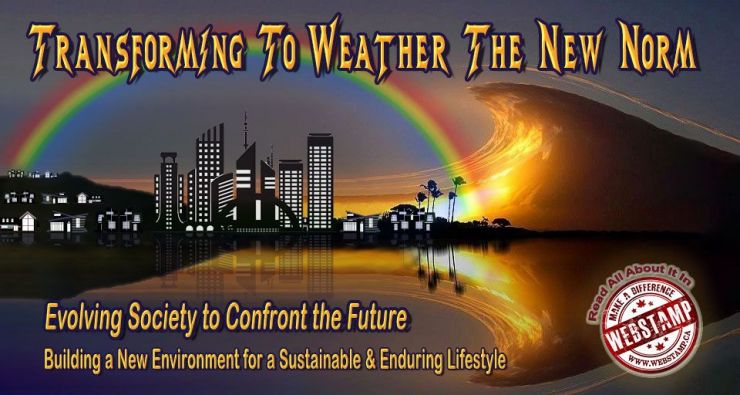Not only is climate change having a very real impact on the ecosystems, but also on our social and economic systems. Exponential increases in global temperatures, changing precipitation patterns, rising sea levels, and natural hazards have everyone scrambling to recover from these upsurges of disasters. There is significant destruction of the environment and property, an upheaval of people from their homes and lifestyle, and an ever-increasing financial burden. Society needs to adapt and change social priorities to survive and change the future for a comfortable survival.
According to the capitalist Nick Hanauer, rich capitalists grab an ever-increasing share of the economic pie every year. Economics used to work in the public interest. Today’s neoliberal era of economics is governed by big corporations and billionaires. This top 1% of the ruling class warns against enacting economic policies such as raising taxes on the rich, regulating powerful corporations or raising the minimum wage would be a big mistake. Yet they were proven wrong after new luxury taxes were introduced, regulations tightened, and a reduction in wealth inequality would hurt the economy when it actually improved it.
Over the last 30 years in the USA, the top 1% have grown $21 trillion richer while the bottom 50% have become $900 billion poorer. Studies have concluded that today’s neoliberal economic theory is dangerously wrong. It is not capital that creates economic growth, it’s people. Nor is it self-interest that promotes the public good, its reciprocity, or competition that produces our prosperity but cooperation.
Many problems are caused by neo-capitalism with over-production and -consumerism in acquiring massive wealth. Climate change is caused by pollution, volatile economic woes, and unsustainable luxury living. Not only do we need to develop an equal share economic system, but we need to also build more disaster-resistant, eco-friendly, and self-sustainable communities to continue to live comfortably. Taming economics should be a priority for change towards a better future.
There are Nine reports on climate change adaptation in Calgary and Edmonton on Building a Climate-Resilient City. These reports state that we must transform and adapt our economics and finance, agriculture and food security, urban ecosystems, transportation infrastructure, water supply and sanitation systems, electricity and information/communication technology infrastructure, disaster preparedness/emergency management, and how we build the environment.
Investing in well-designed resilient buildings is one of the best ways of adapting to climate change which could save trillions of dollars on damages. Buildings should be designed to suit the terrain they are built in. In fire-prone areas, we should build structures using fire-resistant materials, like hempcrete, so the buildings won’t burn. In flood-prone areas, structures should be built on posts to prevent them from being flooded. We need to make sure that structures in high-speed winds and cyclone zones are designed with better wind-resistant shapes and are sturdier to withstand extreme forces.
There are many ways that we can prepare to weather climate change, but it will take an extraordinary effort of all forms of civic, government, and commercial cooperation in developing a system that will work to benefit everyone. We need to find a more just economic system, build an environment to suit the climate and begin to live in harmony in our new surroundings. Make the M.A.D. Move towards preparing for the future through actively participating in changing society for the better.



